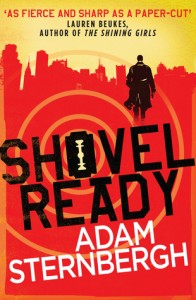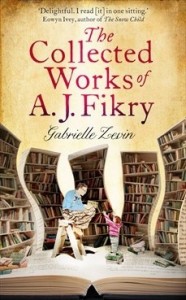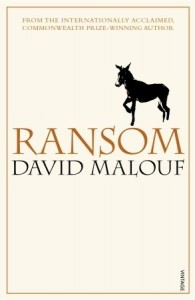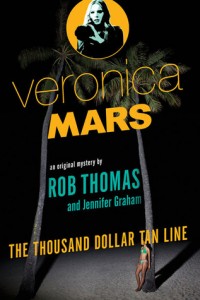 Title: Shovel Ready (Goodreads)
Title: Shovel Ready (Goodreads)
Author: Adam Sternbergh
Published: Hachette, 2014
Pages: 256
Genres: Dystopia
My Copy: ARC from Netgalley
Buy: Amazon, Book Depository, Kindle (or visit your local Indie bookstore)
He is only known as Spademan, former garbage man in New York City – that was until a terrorist attack on Times Square killed his wife. Now he is taking out more than trash; a gun for hire, he will do your bidding as long as you are willing to pay. “I don’t want to know your reasons. I don’t care. Think of me as a bullet. Just point.” Shovel Ready is a fast paced science fiction thriller set in the wasteland, which use to be known as New York City.
Adam Sternbergh combines his favourite parts of neo-noir, cyberpunk and science fiction and mashes them all together to make an action novel that is crying out for a movie adaptation. Shovel Ready is so dialogue heavy that one might think it is written in a way that could be converted into a screenplay without any effort. Only problem with this is the publisher’s choice to leave out quotation marks. I hate when they do this and in a book with so much dialogue it really can be a deterrent.
Spademan is a strong protagonist, an anti-hero with strength, wit and his own set of morels. “I kill men and I kill women because I don’t discriminate. I don’t kill children because that’s a different kind of psycho.” I understand why he turns from killer to protector of his target, the runaway daughter of a wealthy US televangelist. However something didn’t sit right; a hitman is often an unemotional, uncompromising character but Spademan wasn’t. He reads like a psychopath but then every so often his actions feel uncharacteristic and that really throws me out of the novel.
Take out Spademan and just look at the world Sternbergh has created and you won’t be left wondering where he drew inspiration from. This world feels like Bladerunner and the virtual reality world know as the limnosphere reminds me of The Matrix mixed with Surrogates. In fact, it feels like the author borrowed so much from different science fiction movies and novels it is hard to pick an original thought.
When reading Shovel Ready everything whisks along and the reader never has time to stop and think about anything. I really enjoyed the novel but once I finished reading it I noticed just how much was borrowed from other mediums. I do, however, wonder if Shovel Ready was really trying to explore the issue of social disengagement that our world is heading towards but during the reading of this novel I never picked up anything so in depth.
For a fast paced science fiction/action novel, then Shovel Ready is the book for you. I do believe the film rights have already been acquired and we may see an adaptation. Adam Sternbergh is also working on a second Spademan novel and I’ll probably read it. Despite all the flaws, it was a fun, quick read and I did enjoy the experience; it was only after I got mad. Don’t expect anything deep or life altering in Shovel Ready but sometimes you just need some light entertainment.

 Do you remember the scene in The Collected Works of A. J. Fikry (known as The Storied Life of A. J. Fikry in the US) by Gabrielle Zevin where A. J. talks to a sales rep about the suspension of disbelief? In this scene they talk about how some novels require a suspension of disbelief. On one end of the scale you have literary fiction were everything is about real life situations, then three quarters of the way down the scale you have
Do you remember the scene in The Collected Works of A. J. Fikry (known as The Storied Life of A. J. Fikry in the US) by Gabrielle Zevin where A. J. talks to a sales rep about the suspension of disbelief? In this scene they talk about how some novels require a suspension of disbelief. On one end of the scale you have literary fiction were everything is about real life situations, then three quarters of the way down the scale you have  I love my blog, I’ve been very proud of it and I can’t think of anything better. I like to spend my time playing with it, slowly improving it and writing posts for it. I don’t make money off my blog but it is a real passion of mine and something I plan to continue for a very long time. Recently I read a fantastic article on
I love my blog, I’ve been very proud of it and I can’t think of anything better. I like to spend my time playing with it, slowly improving it and writing posts for it. I don’t make money off my blog but it is a real passion of mine and something I plan to continue for a very long time. Recently I read a fantastic article on  Title: The Wives of Los Alamos (
Title: The Wives of Los Alamos ( Title: Ransom (
Title: Ransom (



 Title: The Temporary Gentleman (
Title: The Temporary Gentleman (
 I’ve often contemplated this question and since studying at university I’ve noticed that they often recommend two publishers more than any other;
I’ve often contemplated this question and since studying at university I’ve noticed that they often recommend two publishers more than any other;  Title: The Thousand-Dollar Tan Line (
Title: The Thousand-Dollar Tan Line (